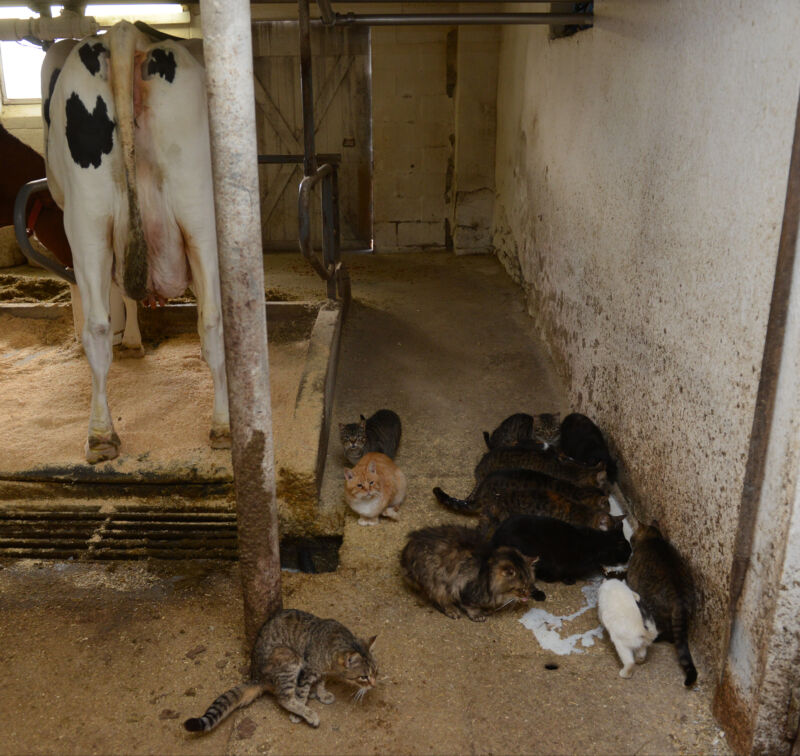Cats suffer H5N1 brain infections, blindness, death after drinking raw milk

Enlarge / Farm cats drinking from a trough of milk from cows that were just milked. (credit: Getty | )
On March 16, cows on a Texas dairy farm began showing symptoms of a mysterious illness now known to be H5N1 bird flu. Their symptoms were nondescript, but their milk production dramatically dropped and turned thick and creamy yellow. The next day, cats on the farm that had consumed some of the raw milk from the sick cows also became ill. While the cows would go on to largely recover, the cats weren't so lucky. They developed depressed mental states, stiff body movements, loss of coordination, circling, copious discharge from their eyes and noses, and blindness. By March 20, over half of the farm's 24 or so cats died from the flu.
In a study published today in the journal Emerging Infectious Diseases, researchers in Iowa, Texas, and Kansas found that the cats had H5N1 not just in their lungs but also in their brains, hearts, and eyes. The findings are similar to those seen in cats that were experimentally infected with H5N1, aka highly pathogenic avian influenza virus (HPAI). But, on the Texas dairy farm, they present an ominous warning of the potential for transmission of this dangerous and evolving virus.
The contaminated milk was the most likely source of the cat's fatal infections, the study authors concluded. Although it can't be entirely ruled out that the cats got sick from eating infected wild birds, the milk they drank from the sick cows was brimming with virus particles, and genetic data shows almost exact matches between the cows, their milk, and the cats. "Therefore, our findings suggest cross-species mammal-to-mammal transmission of HPAI H5N1 virus and raise new concerns regarding the potential for virus spread within mammal populations," wrote the authors, who are veterinary researchers from Iowa, Texas, and Kansas.